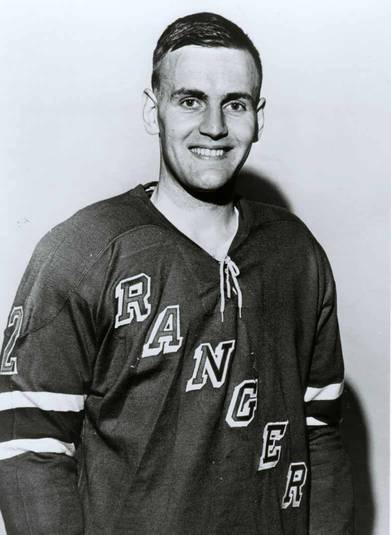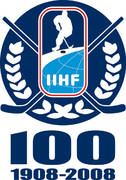

Story #70 Swede Ulf Sterner - the first European in the NHLJanuary 27, 1965 - New York
Ulf Sterner made his international debut at the 1960 Olympics at age 18, and for the next four years was a dominating centre in international competition. He was part of the team that won an historic gold at the 1962 World Championship in Colorado Springs, and a year later led the team to a silver medal. At the 1964 Olympics in Innsbruck, Sterner led all scorers with eleven points in seven games.
 The next year, Sterner came to camp more determined than ever to play in the NHL. He made a great impression at training camp and displayed excellent skill during several exhibition games with the Rangers, and he agreed to start the season with the St. Paul Rangers of the Central League. In two months, Sterner had adjusted, made tremendous strides, and was promoted to the Baltimore Clippers of the AHL. Again, he used his skills to his advantage, centring the team’s top line also featuring Ken Schinkel and Ray Brunel. The only criticism levied against Sterner was his unwillingness to play physically, but as he rightly pointed out, international hockey forbade body checking in the offensive zone, so a 60-minute game with heavy hitting all over the ice was something he simply wasn’t trained for.
About the Top 100 StoriesAs part of the IIHF's 100th anniversary celebrations, www.IIHF.com is featuring the 100 top international hockey stories from the past century (1908-2008). Starting now and continuing through the 2008 IIHF World Championships in Canada, we will bring you approximately three stories a week counting down from Number 100 to Number 11.
The Final Top 10 Countdown will be one of the highlights of the IIHF's Centennial Gala Evening in Quebec City on May 17, the day prior to the Gold Medal Game of the 2008 World Championship.
These are the criteria for inclusion on this list: First, the story has to have had a considerable influence on international hockey. Second, it has to have had either a major immediate impact or a long-lasting significance on the game. Third, although it doesn't necessarily have to be about top players, the story does have to pertain to the highest level of play, notably Olympics, World Championships, and the like. The story can be about a single moment — a goal, a great save, a referee's call — or about an historic event of longer duration — a game, series, tournament, or rule change. |
 Click here for the 100 Top Stories
|
|






